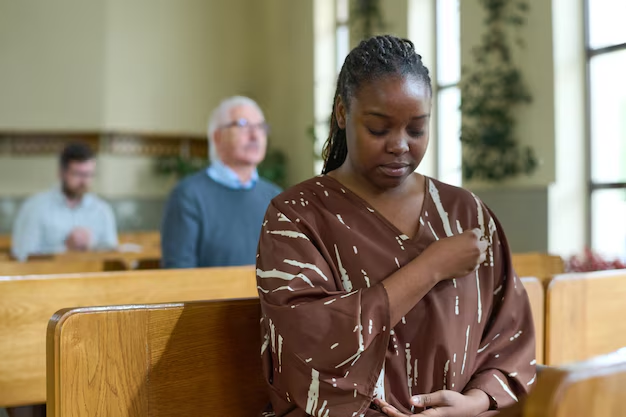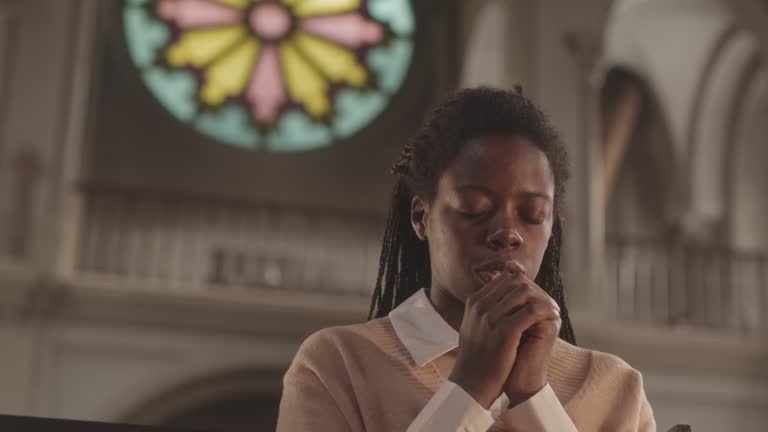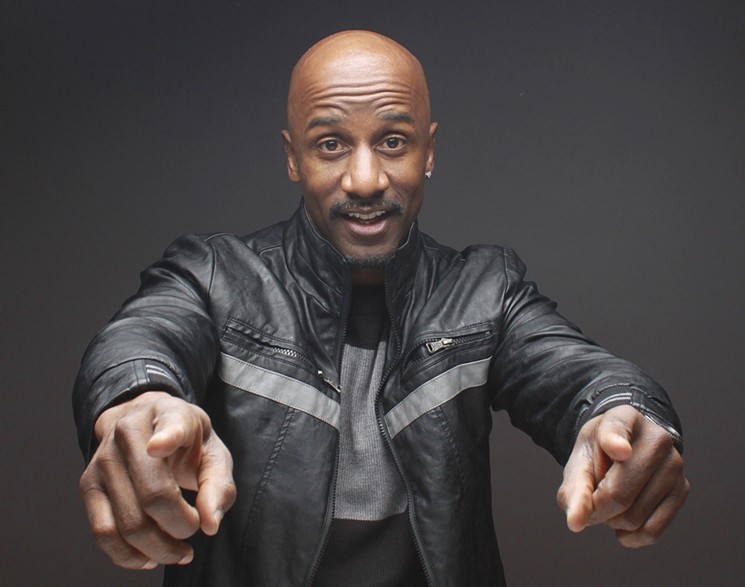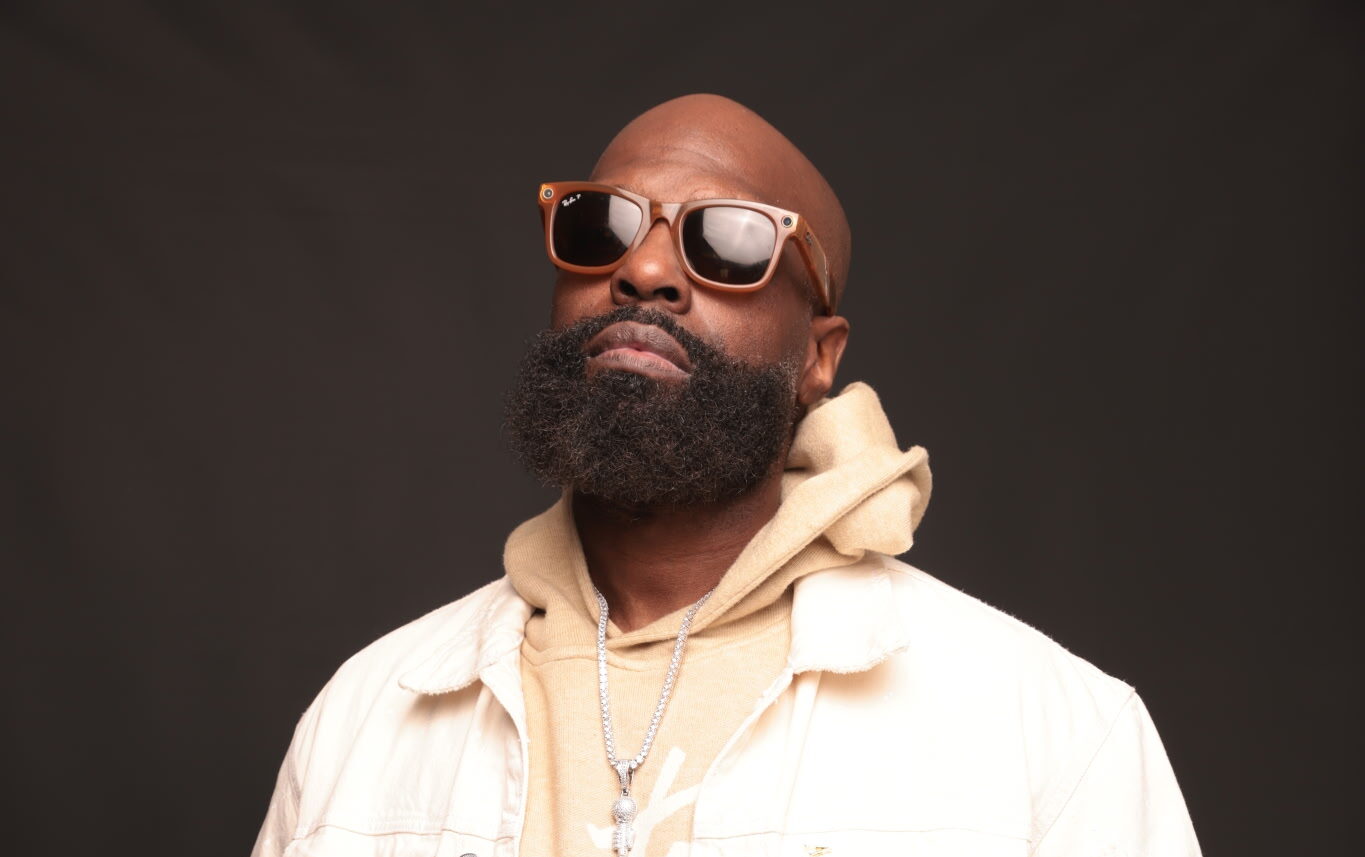We Can’t Pray Cancer Away: How Black Women and the Church Can Heal Together
Every Sunday, across America, millions of Black women dress in their finest and head to church. They’re the mothers, daughters, aunties, and grandmothers who hold the pews down. They keep

Every Sunday, across America, millions of Black women dress in their finest and head to church. They’re the mothers, daughters, aunties, and grandmothers who hold the pews down. They keep the choir robes ironed, the offering counted, and the prayers lifted.
But behind the hats, heels, and hallelujahs, many are fighting silent battles with their health—some of which could be prevented or caught early if only the conversation was different. If only the church talked about health the way it talks about hope.
It’s time we stop whispering about illness and start walking boldly toward healing. Together.
The Hard Truth: Cancer Is Taking Our Sisters Too Soon
African American women are dying from cancer at higher rates than nearly every other group. Not because we’re genetically doomed, but because we’re too often diagnosed too late, or not screened at all.
- Black women are 40% more likely to die from breast cancer than white women.
- We’re more likely to get aggressive types of cancer, like triple-negative breast cancer, especially before the age of 40.
- Obesity affects more than 50% of Black women, increasing our risks for cancer, diabetes, high blood pressure, and stroke.
- Many of us don’t know the screening guidelines, or we’re too busy caring for everyone else to take care of ourselves.
We are not statistics. We are stories. And too many are being cut short.
“Your Body is a Temple”: What Happens When the Church Doesn’t Talk About Health

In many of our churches, health isn’t part of the ministry. Sure, we might have a health fair once a year, or a nurse taking blood pressure in the back room—but how often are we really talking about wellness from the pulpit?
It’s hard to take health advice seriously when the pastor is 60 pounds overweight and out of breath after a sermon. We love our spiritual leaders—but we need them to lead by example. If the body is truly a temple, we should be taking care of it like we believe that. Not just spiritually, but physically too.
We can’t just pray for healing—we have to teach prevention. And that starts in the place we trust most: the church.
Sister to Sister: Making Health Personal in the Church
What if the woman next to you in the pew knew where to get a free mammogram?
What if your prayer partner helped you walk 3 times a week?
What if the church kitchen served healthier meals after Sunday service?
We’ve seen it work:
- In South Carolina, Black women started sharing their stories as cancer survivors during services. Screening rates went up.
- In California, church “Health Ambassadors” were trained to give workshops on breast, prostate, and colon cancer. More people got screened.
- In the South, pastors teamed up with local hospitals to bring mammogram vans to the church parking lot.
It’s simple: when health is brought to where we worship, we respond.
How to Educate Women in the Church — and Make It Stick
Let’s move beyond brochures and start building community around wellness:
-Train trusted women in the church—mothers, ushers, choir members—to become Lay Health Advisors.
–Hold “Wellness Wednesdays” or “Fit & Faith” groups where women can learn, laugh, and move together.
–Use scripture to frame the message: “Beloved, I wish above all things that thou mayest prosper and be in health…” (3 John 1:2).
–Invite local Black doctors or nurses to speak, answer questions, and offer free health checks right at church.
–Share testimonies—let women who’ve survived cancer or lost weight tell their stories. There’s power in seeing someone who looks like you take control of their health.
–Feed people better—literally. Healthier meals at church events can help shift the culture gently.
Family‑focused, peer‑to‑peer programs: The Kin Keeper model encourages health education within family systems, breaking down stigma and generating internal motivation to screen and adopt preventive behaviors
Train lay health ambassadors (CHAs), particularly trusted women in the church, to lead workshops on cancer awareness, screening guidelines, nutrition, and activity levels—the spiritual approach has shown higher adherence
This isn’t about shame. It’s about support. And healing—real healing—starts when we tell the truth in love.
A Pastor’s Role: More Than Preaching
Pastors set the tone. When they take their health seriously, the congregation notices. When they talk openly about fitness, food, and screenings, people listen.
Imagine your pastor walking with the congregation every Saturday.
Imagine a sermon series called “Fit for the Kingdom.”
Imagine a church where the praise is high and the blood pressure is low.
Leadership isn’t just spiritual. It’s physical too.
A Holistic Vision: Body, Spirit, and Community
Incorporating Black women’s health into church life is about faith-aligned stewardship:
- Sermons that connect spiritual discipline with body care.
- Testimonies from women who have transformed their health journey—serving as living inspiration.
- Women-led wellness collectives, anchored by scripture, healthy meals shared after service, and gentle fitness offerings embedded into fellowship.
- Collaborations with trusted health partners offering screenings and follow-up care on site.
- Measurable accountability: track number of participants, screening referrals completed, weight lost, and health improvements.
Health Education Outcomes Tailored for Women
- Studies show cancer screening education tailored for African American women increases mammogram uptake by ~56% versus standard approaches (OR = 1.56, 95% CI = 1.27–1.93) PMC+2PMC+2PMC+2.
- Church-based obesity treatment interventions show better adherence and modest, sustained weight loss for Black women when delivered in culturally congruent fellowships
Final Word: Faith Without Action Is… Just Talk
We love our churches. But if we’re being honest, we can do better. We can teach health the way we teach holiness. We can wrap science in scripture. We can save lives—not just souls.
Because a woman can’t be in the choir if she’s too sick to sing.
She can’t run the youth ministry if cancer has her on chemo.
She can’t give, serve, or lead if her body is broken down.
Let’s not wait until we’re planning another funeral. Let’s be proactive. Let’s love each other enough to start the health conversation now.
We can still shout. Still dance. Still praise. But we can also walk. Eat better. Get screened. And live longer.
By Ravoke News Desk for Ravoke.com
Let health ministries go deeper. Let wellness be gospel. Let our sisters live.








